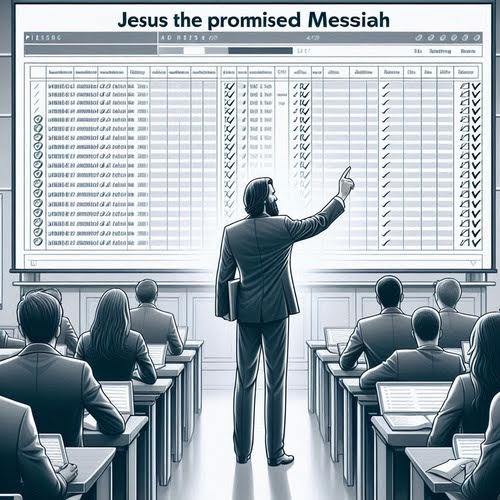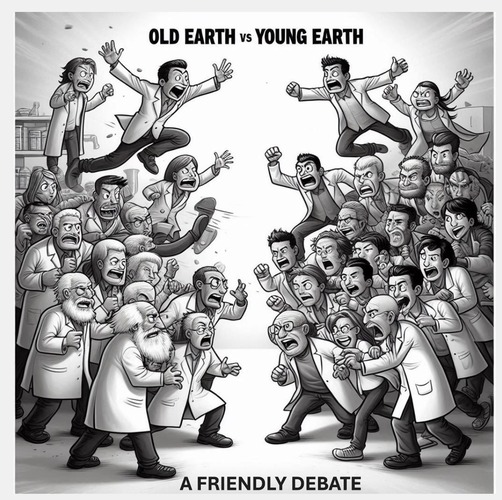Christ in the Lord’s Supper: The Reformed and Other Views
The Lord’s Supper is one of the most precious practices for the believer, yet Christians have debated for centuries about exactly how Christ is present in the sacrament. Is Jesus physically present in the bread and wine? Or is the sacrament merely symbolic? Or is there another understanding that better captures Bible truth? This post explores the Reformed view of Christ’s presence in the Lord’s Supper and why it offers the most scripturally sound position compared to alternative understandings.
THE REFORMED VIEW: SPIRITUAL REAL PRESENCE
The Reformed tradition, in line with John Calvin’s teaching, holds Christ is truly present in the Lord’s Supper—not physically or merely symbolically, but genuinely and spiritually. This view is often called “spiritual but real presence.”
Calvin wrote in his Institutes: “The flesh of Christ is like a rich and inexhaustible fountain that pours into us the life springing forth from the Godhead.” This spiritual feeding happens not through physical consumption but through the work of the Holy Spirit.
Key aspects of the reformed view include:
- Spiritual, not physical presence: Christ’s physical body remains in heaven at the right hand of the Father, but believers genuinely commune with him through the Spirit.
- Lifted up, not brought down: Rather than Christ descending physically into the elements, believers are spiritually “lifted up” to Christ through faith.
- True nourishment: The Lord’s Supper provides real spiritual nourishment—not just mental reflection—as believers feed on Christ by faith.
- The crucial role of faith: The benefits of the sacrament are received through faith, not through the physical elements themselves.
Scripture supports this understanding. In John 6:53-56, Jesus declares, “Unless you eat the flesh of the Son of Man and drink his blood, you have no life in you.” Yet later in the same discourse (v. 63), Jesus clarifies: “It is the Spirit who gives life; the flesh is no help at all.” This perfectly aligns with the Reformed emphasis on spiritual feeding rather than physical consumption.
ALTERNATIVE VIEWS ON CHRIST’S PRESENCE
The Roman Catholic View: Transubstantiation The Roman Catholic doctrine of transubstantiation teaches that during consecration, the bread and wine are transformed in substance (though not in appearance) into the actual body and blood of Christ. This view relies heavily on a literal reading of Christ’s words, “This is my body.”
While respecting the reverence behind this view, the Reformed tradition identifies several issues:
- It depends more on Aristotelian philosophy (substance vs. accidents) than biblical exposition
- It contradicts the reality of Christ’s ascended human body being in heaven
- It diminishes the role of faith in receiving Christ, emphasizing instead the physical consumption
- It overlooks the metaphorical language common in Scripture and especially in Jesus’ teaching
The Lutheran View: Consubstantiation/Sacramental Union Martin Luther rejected transubstantiation but still affirmed Christ’s physical presence “in, with, and under” the bread and wine. Lutherans teach Christ’s body and blood are truly present alongside the elements, describing this as the “sacramental union.”
The Lutheran view requires the doctrine of Christ’s ubiquity (omnipresence of His human nature), which presents theological challenges:
- It blurs the distinction between Christ’s divine and human natures
- It conflicts with the biblical teaching of Christ’s bodily ascension
- It diminishes the critical role of the Holy Spirit in communion
- It struggles with the same issues of physicality as transubstantiation
The Zwinglian/Memorial View At the other end of the spectrum, Ulrich Zwingli taught the Lord’s Supper is primarily a memorial or symbolic act of remembrance with no real presence of Christ. This view emphasises the commemorative aspect: “Do this in remembrance of me.”
While valuing remembrance, the Reformed tradition sees this view as insufficient because:
- It fails to account for Paul’s strong language about communion with Christ’s body and blood (1 Corinthians 10:16)
- It doesn’t adequately explain the warnings about partaking unworthily (1 Corinthians 11:27-29)
- It reduces the sacrament to merely a mental exercise rather than a means of grace
- It overlooks the mystery and spiritual reality affirmed in Scripture
WHY THE REFORMED VIEW BEST ALIGNS WITH SCRIPTURE
The Reformed understanding threads the biblical needle by affirming both Christ’s real presence and the reality of His ascension. Consider these biblical foundations:
- The Ascension Matters: Acts 1:9-11 and Hebrews 10:12-13 clearly teach that Christ ascended bodily to heaven, where he remains until his return. This creates an insurmountable problem for views requiring Christ’s physical presence in the elements.
- The Spirit’s Role is Central: John 14:16-17 and 16:7 teach that Christ sent the Holy Spirit to be his presence with believers after his ascension. The Spirit’s mediating role in communion perfectly explains how believers can genuinely feed on Christ while he remains physically in heaven.
- Spiritual Reality, Not Physical Transformation: When Paul writes that the bread is “participation in the body of Christ” (1 Corinthians 10:16), he’s describing a spiritual reality rather than a physical transformation. This is consistent with how the New Testament describes our union with Christ throughout—as spiritual yet completely real.
- Faith as the Instrument: The Reformed view honours Scripture’s consistent emphasis on faith as the means by which we receive Christ. Ephesians 3:17 says Christ dwells in our hearts “through faith,” not through physical consumption.
CONCLUSION: CHRIST IN THE LORD’S SUPPER
The Reformed view of spiritual real presence offers the most biblically faithful understanding of Christ’s presence in the Lord’s Supper. It honours Christ’s true humanity and bodily ascension while affirming the genuine spiritual nourishment believers receive through communion. It preserves the mysterious nature of the sacrament without requiring philosophical explanations that go beyond Scripture.
Most importantly, this view keeps Christ Himself—not the elements—as the central focus of the sacrament. In the Lord’s Supper, we don’t merely remember a past event or physically consume transformed elements; we commune with our living Saviour through the power of the Holy Spirit, receiving spiritual nourishment for our journey of faith.
When we approach the table with this understanding, the Lord’s Supper becomes not a confusing ritual or mere symbol, but a profound means of grace through which Christ strengthens His church.
CHRIST IN THE LORD’S SUPPER: RELATED FAQs
How did Calvin’s view differ from Zwingli’s when both are sometimes described as “symbolic”? While both rejected physical presence, Calvin emphatically taught a *real* spiritual communion with Christ, not merely remembrance. Calvin insisted the Lord’s Supper provides genuine spiritual nourishment through the Holy Spirit, with believers truly—not just mentally—feeding on Christ. Zwingli primarily emphasised commemoration, while Calvin emphasised actual spiritual communion with the risen Christ.
Does the Reformed view teach unbelievers receive Christ in communion? No, the Reformed view holds only believers receive Christ in the Lord’s Supper through faith. Unlike the Catholic and Lutheran views where Christ is objectively present in the elements regardless of the recipient’s faith, the Reformed perspective teaches that those without faith receive only the physical elements. This reflects the biblical principle that spiritual benefits are always received through faith.
How does the Reformed view understand Paul’s warning about “eating and drinking judgment” in 1 Corinthians 11? The Reformed tradition understands this as highlighting the serious spiritual nature of communion rather than proving physical presence. The warning refers to the spiritual irreverence of treating lightly what represents Christ’s body and blood, not about physically consuming the actual body. This demonstrates the spiritual significance the Reformed view attributes to the sacrament despite rejecting physical transformation.
Did the early church fathers support something like the Reformed view? Several early church fathers used language suggesting a spiritual understanding of Christ’s presence rather than a strictly physical one. Augustine wrote believers must “eat spiritually” and distinguished between the physical elements and the spiritual reality they conveyed. While patristic sacramental theology was developing and diverse, elements of spiritual presence can be found in various early writings.
How does the Reformed view handle Jesus’ words “This is my body”? The Reformed view recognises Jesus frequently used metaphorical language (“I am the door,” “I am the vine”) and spoke in sacramental terms. Just as Jesus didn’t literally become a door or vine, the elements represent Christ’s body and blood in a profound sacramental way. This interpretive approach respects biblical patterns of speech while avoiding philosophical complications.
How does the “spiritual real presence” relate to Reformed teachings about union with Christ? The Lord’s Supper in Reformed theology is an extension and strengthening of the believer’s spiritual union with Christ that exists by faith. The communion meal doesn’t create this union but confirms and nourishes it, making the sacrament a means of grace that strengthens what’s already true for believers. This connects communion to the broader Reformed understanding of salvation and sanctification.
How does the Reformed view impact frequency of communion observance? Historically, Reformed churches have varied in communion frequency, though Calvin himself advocated for weekly observance. The Reformed view’s emphasis on spiritual nourishment logically supports frequent celebration, though practical considerations have often led to monthly or quarterly observance in many churches. Today, many Reformed congregations are returning to more frequent communion precisely because they value it as a genuine means of grace.
CHRIST IN THE LORD’S SUPPER: OUR RELATED POSTS
- Jesus and the Sabbath: Did He Break It or Fulfil It?
- The Passover Connection: Why Jesus’ Legs Weren’t Broken
Editor's Pick

Rethinking Sickle Cell Anaemia: A Case for Intelligent Design
Sickle cell anaemia presents what many consider evolution’s strongest card—a genetic condition that causes suffering yet provides protection against malaria. [...]

‘Bad’ Design: Flaw in Nature Or Flaw in Our Perspective?
When the Eiffel Tower was first proposed, critics called it a monstrous eyesore that would ruin Paris forever. Today, it’s [...]

The Problem of Divine Absence: How Do Believers Cope?
WHEN GOD SEEMS FAR: THE GREAT DISCONNECT Ever wondered why God seemed so close to Joseph in his Egyptian prison, [...]
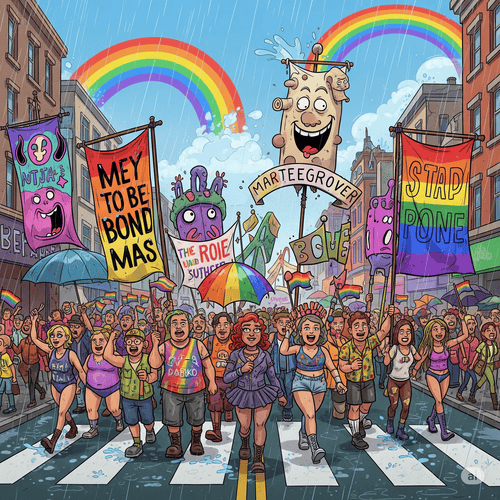
Is ‘Gay Christian’ a Biblically Acceptable Identity to Have?
THE QUESTION OF IDENTITY IN BIBLICAL PERSPECTIVE The term “gay Christian” has become increasingly common in contemporary religious discourse, representing [...]
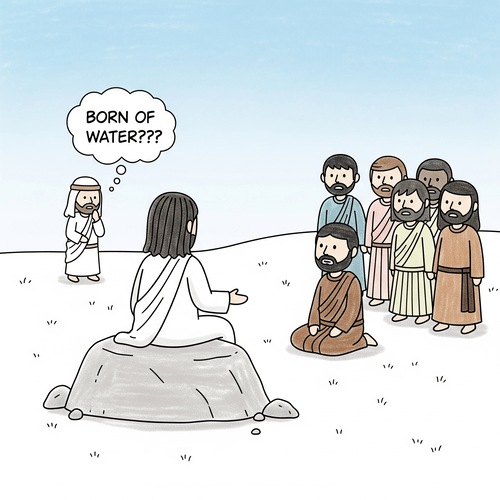
What Does ‘Born of Water’ in John 3:5 Mean?
THE REFORMED VIEW VS OTHER INTERPRETATIONS ”Jesus answered, ‘Truly, truly, I say to you, unless one is born of water [...]
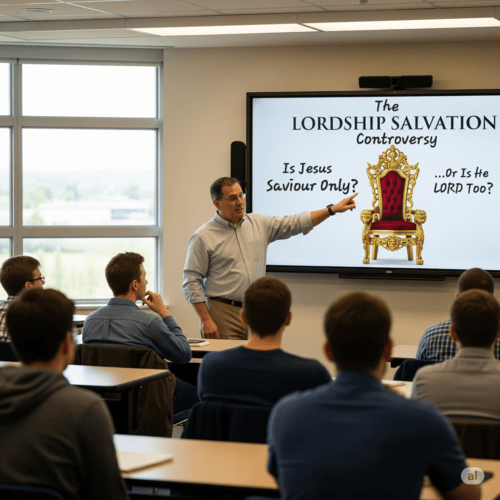
The Lordship Salvation Controversy: What’s It All About?
Can someone be truly saved without making Jesus Christ their Lord? The question sits at the heart of one of [...]

1 John 5:6: How Do Water and Blood Reveal Jesus’ True Identity?
"This is he who came by water and blood—Jesus Christ; not by the water only but by the water and [...]
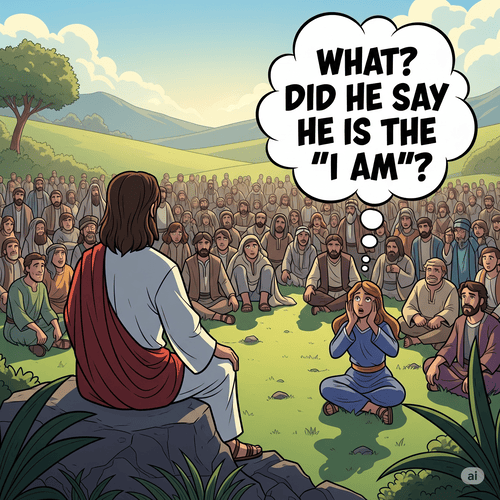
Is Jesus Yahweh? Answering Unitarian Objections
The question of whether Jesus Christ is truly God has divided Christians for centuries. While orthodox Christianity has consistently affirmed [...]
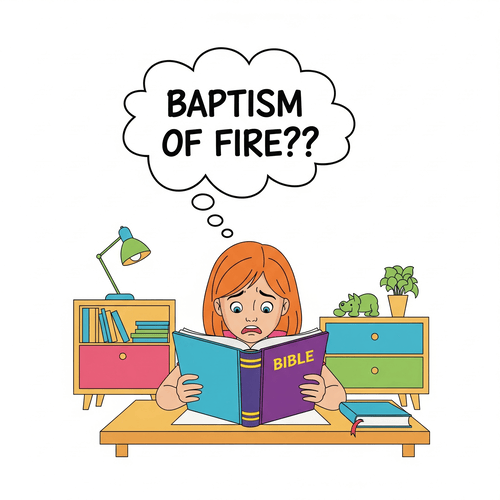
Matthew 3:11: What Is the Baptism of Fire?
When John the Baptist declared, “He will baptise you with the Holy Spirit and fire” (Matthew 3:11), his words carried [...]

From Rock to Stumbling Block: Why Jesus Called Peter Satan
In the span of just six verses (Matthew 16:13-28), Peter goes from receiving the highest praise from Jesus to getting [...]
SUPPORT US:
Feel the Holy Spirit's gentle nudge to partner with us?
Donate Online:
Account Name: TRUTHS TO DIE FOR FOUNDATION
Account Number: 10243565459
Bank IFSC: IDFB0043391
Bank Name: IDFC FIRST BANK



